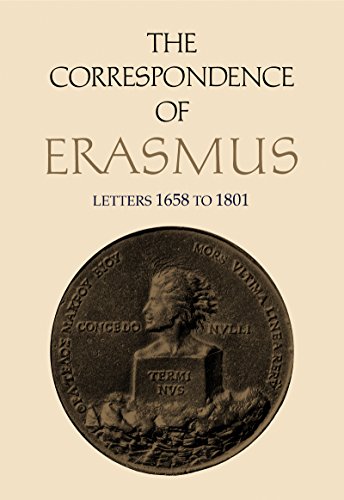

Most ebook files are in PDF format, so you can easily read them using various software such as Foxit Reader or directly on the Google Chrome browser.
Some ebook files are released by publishers in other formats such as .awz, .mobi, .epub, .fb2, etc. You may need to install specific software to read these formats on mobile/PC, such as Calibre.
Please read the tutorial at this link: https://ebookbell.com/faq
We offer FREE conversion to the popular formats you request; however, this may take some time. Therefore, right after payment, please email us, and we will try to provide the service as quickly as possible.
For some exceptional file formats or broken links (if any), please refrain from opening any disputes. Instead, email us first, and we will try to assist within a maximum of 6 hours.
EbookBell Team

4.1
30 reviewsThe letters in Volume 12 cover Erasmus' correspondence for all of 1526 and roughly the first quarter of 1527. This was a difficult period for Erasmus for various reasons, including two bouts of illness serious enough to cause him to draw up his first will in January 1527, and the fact that the Reformers were gaining more and more influence over religious policy in Basel, where he resided. Tension caused by Erasmus' open opposition to this trend was multiplied by the continuing decline in his relations with Oecolampadius, Pellicanus, and Zwingli, all of them former friends or even collaborators in his scholarly editions. These many distractions slowed but did not stop his continuing biblical, patristic, and classical scholarship.
Fearing that the Lutherans might gain complete control of public discourse on the disputed issue of free will, Erasmus rushed to complete his rebuttal to Luther's De servo arbitrio in March 1526. He also felt deeply aggrieved by the attacks launched against him by conservative Catholics at a time when he was actively engaged in opposing the spread of heresy in Germany and Switzerland. His most redoubtable antagonist was Nodl BTda of the University of Paris, who pressed ahead with his plans for a condemnation of Erasmus by the faculty, which he achieved in December 1527. Erasmus' critics at Louvain were more discreet than BTda; their published works obliquely criticized his publications but did not attack him by name. The letters of 1526-1527 also reflect Erasmus' growing fame in Spain, where not only the Latinate intellectuals but also readers of the new Spanish translations of his spiritual writings and satirical works were attracted to his ideas of spiritual renewal.
CWE 12 also contains translations of his earliest will and selections from correspondence among his Spanish admirers during the years 1522-1527. An important and extremely useful appendix, 'Money, Wages, and Real Incomes in the Age of Erasmus,' by John H. Munro, analyzes the purchasing power of money in the period 1500-1540.
Volume 12 of the Collected Works of Erasmus series.